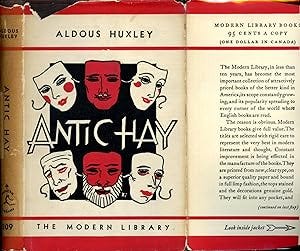I pay so little attention to professional sports — and to any other sort of competitive endeavor — that I would have missed one of the big antics moments of the last month had it not been for the intercession of my friend C.J. Hirschfield. Her email to me read, in full: “Would love your take on Draymond’s use of ‘antics’.”
I had no idea what she was referring to.
The other antics moment, by contrast, was very much in my wheelhouse: girls and retail.
When I read C.J.’s email I briefly thought Draymond was the name of a company I’d never heard of. Google set me straight: Draymond is Draymond Green, a 6'6" power forward1 for the Golden State Warriors, which would be my “home team” if I chose to care. (I do not.) I actually remembered having heard of him once or twice; he’s one of three Warriors players whose names I might recognize as long as the surname was included. (The others are Steph Curry and Klay Thompson. I mostly know about Klay Thompson because he took up bay swimming — my own preferred leisure activity; I can’t really call it my sport, because I don’t compete — when he was recovering from some injuries. Does he still play for the Warriors? I just checked. He does.)
Here’s what many of you also probably know but I didn’t: On December 12, Draymond Green was ejected from a Warriors-Suns game after he punched an opponent, Jusuf Nurkic, in the face. The following day he was suspended indefinitely from NBA play.
And what was Green’s response? Here’s what he told reporters:
“Antics isn’t something that got me here, and so when I look back on these situations it’s like, ‘Can you remove the antics?’ I’m very confident I can remove the antics,” Green said, “and I’m very confident that if I do remove the antics, no one’s worried about how I play the game of basketball. Nobody’s worried about how I carry myself in the game of basketball but it’s the antics. So that’s my focus.”
That’s five “antics.” Inconceivable!
I might not have paid further attention — already way more than I usually pay to basketball — if another antics hadn’t cropped up in a wholly different context: a story about preteen girls.

The “antics” here, as reported by some employees of the beauty chains Sephora and Ulta, involved 9-, 10-, 11-, and 12-year-old girls “display[ing] rude attitudes when they don’t get what they want and strong-arm[ing] their parents2 into spending hundreds of dollars on products.” One Sephora employee said she’d see girls “push other customers out of the way to reach a product first, open and contaminate sealed products without buying them and have had them abruptly interrupt while she was helping other customers.”
Not Draymond-level fistfights, granted. But also: not “antics.”
Here’s how the OED defines antics when it’s used as a plural noun: “Grotesque, absurd, or amusing gestures or actions; silly, foolish, or outrageous behaviour.” Merriam-Webster says antics are “an attention-drawing, often wildly playful or funny act or action.” “Wildly playful” would seem to be a generous way of describing punching someone in the face or intentionally spilling beauty products on a counter.
It hardly seems possible, but we get antic (“frolicsome,” “whimsically lighthearted”) and antics from antique. Merriam-Webster explains the path from “old” to “playful”:
When Renaissance Italians began exploring the ancient Roman ruins around them, they discovered fantastic mural paintings that they called grottesca (which means "grotesques," a name given to the paintings because they were found in caves, or grotte). Because they were so old, the murals were also called antichi, or "ancient things." English speakers adopted antichi, modifying it to antike or anticke, and eventually any behavior or dress reminiscent of the kind depicted in the Roman murals became known as an antic. Within 20 years of its earliest recorded uses as a noun, antic began appearing as an English adjective. Originally, it meant "grotesque" or "bizarre" (a sense now considered archaic), but today it means "playful, funny, or absurd" and the noun means "an often wildly playful or funny act."

Antics is relatively rare in American English, but according to the Google Ngram Viewer, which tracks usage in published works, its frequency has risen sharply in the last several decades. Many of the antics appearances are in books for children: Animal Antics, Armadillo Antics, Picnic Antics (a Betty and Veronica comic book), Andi’s Antics: A Girl’s Adventures with ADD (“This charming story will encourage children and give parents and teachers an excellent resource”). One book aimed at adult readers has a title caught my eye: Putting the Antics Back in Semantics. It’s a journal for speech pathologists, and it puts antics in its properly silly place.
I don’t know what makes a “power forward” different from a plain old “forward.” More powerful, maybe? As I’ve said, I have a hard time paying attention to grown-ups who play games for large salaries.
The parents seem awfully passive in these accounts. Not even a stern talking-to?





Thanks for the fun morning read. In our Alameda exchange house, the kids’ room (our dressing room given tiny bedroom) displayed the Draymond “broadcaster” bobblehead, presumably his post-play career, https://poshmark.com/listing/NEW-Golden-State-Warriors-2023-Draymond-Green-Broadcaster-Bobblehead-657407c304166d165f1342cc?utm_source=gdm_home&utm_campaign=20870160921&campaign_id=20870160921&ad_partner=google&gskid=pla-2331217891597&gcid=685067984040&ggid=157704161275&gdid=m&g_network=g&enable_guest_buy_flow=true&gad_source=1&gbraid=0AAAAADwcDC8OThsDqTl_-mRRfagwPQtdp&gclid=CjwKCAiAzJOtBhALEiwAtwj8tqkK1Mo6H-cBBX0QUC1pfSs1zAiK6AmC90AmwjoEOWOhNVAfWr-H9xoCCWYQAvD_BwE
Keyword to both phenomena you report on: “stern” as in mostly lacking from coaches and parents IMHO.
Entertaining and informative, as usual!